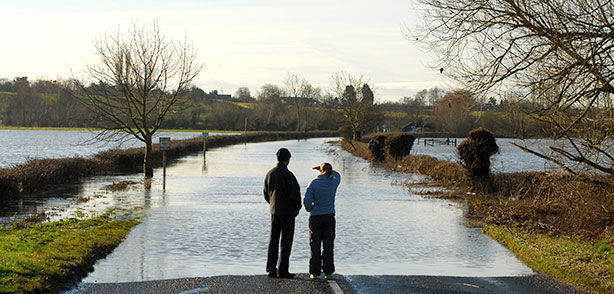Recouping Your Losses after Disaster Strikes

The Small Business Administration (SBA) received more than 500 applications for financial assistance after Baltimore's Francis Scott Key bridge collapsed in March. Other recent disaster headlines are reminders that a natural or man-made disaster can imperil your livelihood.
Disaster-relief options for small businesses
Appropriate insurance coverage and regular data backups can guard against a natural or man-made disaster taking down your business. But as many small businesses have learned, sometimes insurance isn't enough; it also doesn't account for revenue lost during and after a disaster.
To fill this gap, the following government organizations offer loans and/or grants:
1. The SBA: Always ready to lend a hand.
After Hurricanes Katrina, Rita, and Wilma, the SBA approved $10.9 billion in disaster loans for small businesses. In 2018, when Hurricane Florence swept through the Carolinas, the Administration provided more than 7,000 disaster loans within the seven weeks.Types of SBA assistance include:
The Business Physical Disaster loan compensates owners for uninsured real estate, inventory, or equipment that's been damaged or destroyed.
Economic injury disaster loan (EIDL). Your small business may qualify for an EIDL loan if a disaster has left you unable to pay regular business operating expenses. During the pandemic, 44 percent of businesses surveyed received EIDL Covid assistance.
Mitigation assistance helps you rebuild and get back to business. You can also receive funds for making property improvements and other measures to reduce the likelihood of/entirely avoid future damages.
To receive assistance from any of these programs, apply online or call the SBA's Disaster Assistance Customer Service Center.
2. FEMA steps up.
FEMA grants help disaster victims with necessities like medicine and housing. This program can be especially helpful if you own a home-based business.
3. FHA offers mortgage relief.
When disaster strikes, taking care of your home is right up there with business aid. The Department of Housing and Urban Development, or FHA, can waive late fees for its mortgage clients, let them defer mortgage payments, and delay foreclosure on their properties.
For non-FHA homeowners, the FHA recommends contacting your mortgage company as soon as possible to explain your situation. Lenders often create modified payment plans for business-property owners affected by disaster.
Disaster Recovery Planning: Defense against disasters
According to FEMA, one quarter of businesses affected by disaster close permanently. Is your business prepared for the worst, whether it's a natural or man-made disaster?
The SBA offers a robust list of preparation tips, organized by disaster type, including a special break-out on cyberattacks. The IRS also publishes its own guide to disaster preparedness.
Especially in today's hybrid work environment, data protection is right up there with protecting your physical workplace when it comes to disaster planning. Invoices, tax information, contracts, and other critical documents can and should be backed up to the cloud. A host of records-management firms, including Iron Mountain and Carbonite offer offsite storage for digital records and/or physical records-storage services.
Don't procrastinate on making emergency preparations for your small business. Even if you think you're ready, why not check out these guides? It can mean the difference between minor and major losses if disaster strikes.
Did you know?
Small businesses: Confident about disasters, but...
A recent U.S. Chamber of Commerce/MetLife survey of small business owners found that:
77% are ready for weather-related disasters
73% are confident they can sustain a cyberattack
The study also revealed that 27% of small business owners feel they're "just one disaster away" from closing down. Are you one of them?
Since 2008, Fora Financial has distributed $4 billion to 55,000 businesses. Click here or call (877) 419-3568 for more information on how Fora Financial's working capital solutions can help your business thrive.
